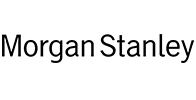In forex trading, you don’t control the market, but you do control your risk. That’s why professional traders rely on tools like hedging and stop loss to manage potential losses. While both serve the same purpose, protecting your account from big drawdowns, they work very differently. In this article, we’ll break down the difference between hedging and stop loss, and dive into four stop loss techniques that can help you trade with confidence. Hedging and...
READ MORE >
Why Taking a Loss Is the Most Difficult Thing to Do in Trading
Losses Hurt – But They’re Part of the Game No one likes to lose, especially not with real money on the line. But if you're serious about becoming a successful forex trader, here's a hard truth you must accept: taking a loss is not only inevitable, it’s necessary. For many traders, especially beginners, accepting a losing trade feels like failure. But that mindset can be dangerous. It leads to holding onto bad trades, doubling down,...
READ MORE >
READ MORE >
Futures Contract Offline Notice
Starting from July, FXCG has decided to delist all futures products. Spot products will be traded normally. The last trading time of the contracts is shown in the table below: [table id=/317] 1.All products may be subjected to change due to holiday. 2.Any positions that must been closed on the expiry date,Or FXCG will close them all at the closing prices meanwhile cancel all the pending orders.
READ MORE >
READ MORE >
Market Behaviour Using Supply and Demand Order Flow
Want to Read the Market Like a Pro? Start with Supply and Demand Order Flow If you've ever asked yourself, “Why did the market reverse there?” or “What’s driving these moves?”, you’re not alone. The forex market may seem unpredictable, but behind the price candles lies a constant tug-of-war between two forces: supply and demand. When you understand order flow, the way buy and sell orders enter the market, you begin to see price movement...
READ MORE >
READ MORE >
Applying “If-Then” Logic to Your Trading Strategy
Every forex trader has been there, caught in the heat of the moment, trying to decide whether to buy, sell, or sit still. Emotions kick in, second-guessing takes over, and before you know it, you’ve exited too early or entered too late. One way to avoid this? Use “if-then” logic. In this article, we’ll break down how applying “if-then” statements to your forex trading strategy can help you stay consistent, reduce emotional decision-making, and trade...
READ MORE >
READ MORE >


















